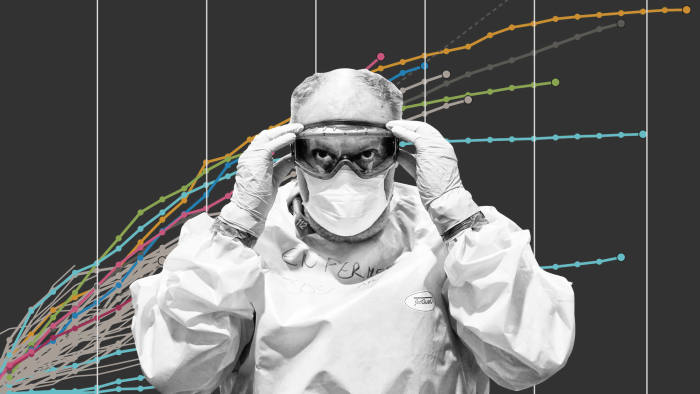If coronavirus marks the beginning of a “new normal” for business enterprise colleges, then this year’s govt education rankings are a watershed: they reflect the crystallisation of longstanding traits in advance of the great disruption of the pandemic took keep in 2020.
While it started off in China, the distribute of the condition underlines the extent of modern day globalisation. Its influence was felt in advance of Covid-19 experienced even been officially named: not only in disruption to domestic establishments but also among Chinese pupils stranded overseas and these of other nationalities getting programs in China.
Within 3 months, infections and deaths experienced mounted sharply about the environment, leaving even the most regionally oriented education centres afflicted by govt-imposed lockdowns, self-isolation and a desperate rush to shift in record time to educating solely on the internet.
The influence of coronavirus will be profound and lengthy long lasting, and the repercussions for govt education — as for so substantially else — very substantial. Much less very clear is how far it triggers an acceleration of existing traits, a partial reversion to aged behavior or a fundamental paradigm shift.
In the quick expression, business enterprise colleges have been dashing to cope with the practicalities of staff members and university student health and fitness and welfare the immediate change to virtual finding out, analysis and administration and the deferment and cancellation of education contracts. The agony has been appreciable and will get worse as customers lower back again on non-critical routines.
The consequence of the virus and the efforts to restrict its distribute was a halt in experience-to-experience get in touch with and vacation. In the medium expression, the financial downturn that is now less than way will be nonetheless a lot more fundamental in altering — and virtually surely lessening — need for business enterprise education.
As we level out in this report, govt education programmes threat getting terribly strike, though history would propose that taught business enterprise faculty qualifications this sort of as MBAs may perhaps be improved safeguarded in a extended period of time of financial restructuring and recession as folks who lose their jobs or think about vocation variations find to reskill.
Opportunities will arise from the existing crisis. School and contributors alike are looking at that engaging on the internet can give greater versatility and new approaches to study. Consciousness and familiarity with technologically enabled types of communication are also serving to to deal with considerations previously lengthy simmering around the further volume of time, funds, inconvenience and the carbon footprint concerned in so substantially avoidable vacation.
“Zoom fatigue” from so several work meetings carried out from residence around an extended period of time threats dampening participants’ willingness to use their laptops for govt education classes. Yet while more mature pupils are not usually comfortable with their enforced further dose of on the internet communication, it is a lot more normal for Generation Z.
Faculties will have to rethink the approaches in which they educate on the internet, blended with classroom and consumer-dependent finding out produce new partnerships and approaches of working with various establishments about the environment and discover the trade-offs involving cost, duration and figures of contributors in their programs.
The crisis will drive further need for new and appropriate wisdom that previously sits in business enterprise colleges, and create approaches for leaders to provide in fresh external specialists and insights. There will possibly be a renewed concentrate on sectors this sort of as health care — previously 1 of the world’s major financial drivers — and how best to deal with it and apply business enterprise expertise. That is illustrated by 1 university student case analyze in this report, of a doctor in China. Additional broadly, there is increasing urge for food for topics this sort of as provide chains, crisis administration and virtual working methods.
In the words and phrases of Jean-François Manzoni, head of IMD, which the FT all over again rated best this yr for open enrolment programmes (Iese topped the custom made program table), the case for ongoing govt education will be dependent on persuading customers that companies are supplying “aspirin not vitamins” — ought to-have rather than good-to-have choices.
In the months forward, there will be appreciable uncertainty, interruptions and competing priorities. Regardless of the inescapable agony, put up-pandemic need for education gives a way for the best companies — these highlighted in this report — to differentiate by themselves nonetheless a lot more evidently.
Editor’s observe
The Economic Periods is producing vital coronavirus protection free to examine to assist absolutely everyone stay educated.
Locate the most recent below.
Rankings, alongside broader information, instruments and insights which includes our reporting on crucial traits, can continue on in future yrs to perform an crucial position in guiding prospective customers to the suitable establishments and serving to colleges by themselves with practical benchmarks.
But the FT is sympathetic and delicate to the simple pressures on govt education companies. Coronavirus will have an effect on several features of schools’ overall performance. Measurement, revenues, structures and consumer assessments will inevitably adjust.
As we prepare for the 2021 rankings in the coming months, we are eager to hear the views of business enterprise colleges — as perfectly as past, existing and prospective customers and other intrigued get-togethers — on what is practical to educate how choices are evolving in observe and how best to assess them. You should e mail us at [email protected] with your views.
Andrew Jack is the FT’s global finding out editor








More Stories
5 Strategies for Growing Your Business Through Digital Marketing
Boost your ecommerce strategy with these 10 affiliate marketing tips
How to Make More Money in Business by Doing the Right Thing –